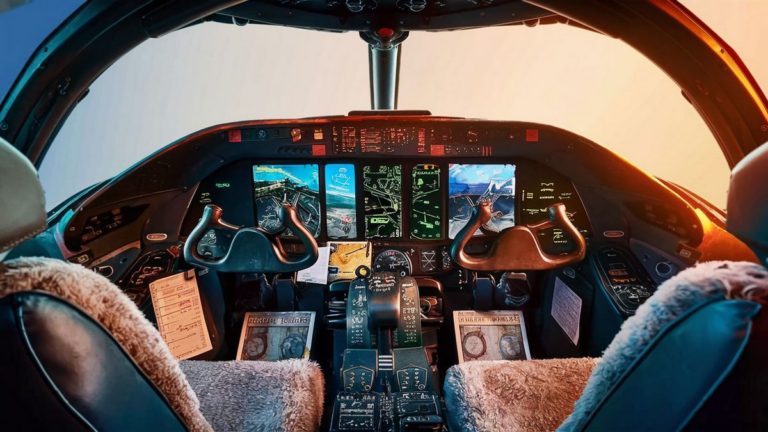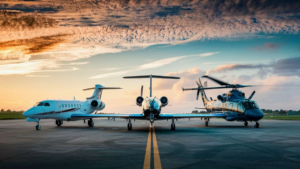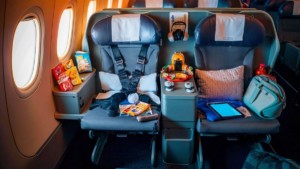When considering the question of whether flying a plane is difficult, various factors come into play, shaping the complexity of the task. Let’s delve into the intricacies of piloting an aircraft and explore the challenges involved.
The Complexity of Piloting
Flying a plane involves mastering a multitude of skills, from understanding aerodynamics to operating complex avionics systems. Pilots undergo extensive training to develop the proficiency required to safely navigate through the skies.
Training and Certification
Before taking control of an aircraft, aspiring pilots must undergo rigorous training programs that encompass both theoretical knowledge and practical flight experience. This training typically includes classroom instruction, simulator sessions, and actual flying lessons under the guidance of certified flight instructors.
Understanding Aircraft Systems
One of the key challenges in flying a plane is familiarizing oneself with the various systems and controls onboard. From navigation instruments to engine management systems, pilots must be adept at interpreting and utilizing this array of technology to ensure a smooth and safe flight.
Decision Making Under Pressure
Another aspect that contributes to the perceived difficulty of flying is the need for quick and effective decision-making, particularly in emergency situations. Pilots must remain calm and composed even when faced with unexpected challenges such as engine failure or adverse weather conditions.
Communication and Coordination
Effective communication is paramount in aviation, especially when operating in busy airspace or during critical phases of flight. Pilots must interact with air traffic controllers, fellow crew members, and other aircraft to maintain situational awareness and ensure seamless operations.
Continuous Learning and Adaptation
The aviation industry is constantly evolving, with advancements in technology and regulatory changes shaping the way aircraft are operated. Pilots must stay abreast of these developments through ongoing training and education, adapting their skills to meet the demands of modern aviation.
Mitigating Challenges Through Experience
While flying a plane can undoubtedly be challenging, experience plays a significant role in mitigating these difficulties. Seasoned pilots draw upon their years of flying experience to anticipate potential issues and navigate through them with confidence and skill.
Mentorship and Guidance
For novice pilots, mentorship and guidance from more experienced aviators can be invaluable in honing their skills and building confidence. Learning from those who have navigated the skies for years can provide valuable insights and practical advice.
Embracing the Challenge
Ultimately, while flying a plane may present its share of challenges, it is also a deeply rewarding and exhilarating experience. Pilots often find fulfillment in overcoming obstacles and mastering the art of flight, making the journey well worth the effort.
Flying and Weather Conditions
Weather conditions significantly impact the complexity of flying a plane. Pilots must possess knowledge of meteorology to make informed decisions regarding route planning and in-flight adjustments. Adverse weather, such as thunderstorms or fog, requires pilots to exercise heightened vigilance and may necessitate alternative courses of action to ensure the safety of the flight.
Navigating through airspace, especially in crowded or unfamiliar regions, presents unique challenges for pilots. They must interpret navigational charts, understand airspace restrictions, and adhere to air traffic control instructions while maintaining situational awareness. Failure to navigate accurately can lead to deviations from the intended flight path and potential safety hazards.
Frequently Asked Questions
| Question | Answer |
|---|---|
| Is flying a plane stressful? | Flying a plane can be stressful, especially during critical phases of flight or when faced with challenging weather conditions. However, pilots undergo training to manage stress effectively and make sound decisions under pressure. |
| What are the physical demands of flying? | Flying a plane requires good physical health and endurance, as pilots may spend long hours in the cockpit. They must also be able to handle the physical demands of operating aircraft controls and maneuvering during flight. |
| How do pilots handle emergencies? | Pilots undergo extensive training to handle emergencies, which includes practicing emergency procedures in simulators and staying current on safety protocols. In the event of an emergency, pilots follow established procedures and rely on their training to mitigate risks and ensure the safety of the flight. |
See also:






